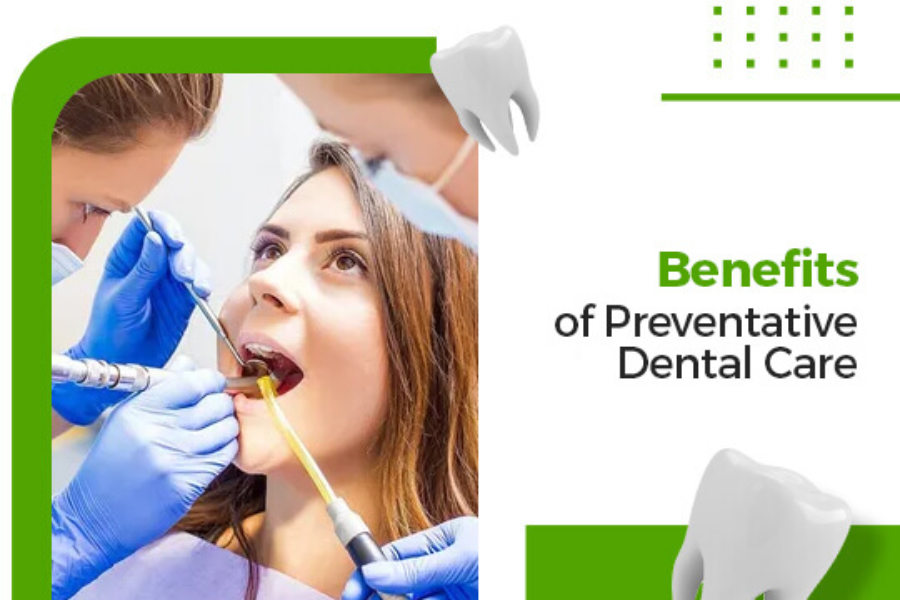The Value of Preventive Dental Care: Tips and Insights
What Is Preventive Dental Care?
Preventive dental care encompasses a range of practices and habits to ward off dental issues before they start. This includes regular activities like brushing, flossing, and attending dental check-ups. By maintaining these habits diligently, you can preserve your dental health and avoid costly and painful dental procedures. Besides personal practices, compare federal dental plans by understanding the different plans available can help you take proactive steps toward preventive dental care. These plans provide financial support, making maintaining regular dental visits and procedures essential for long-term oral health easier.
Benefits of Preventive Dental Care
There are numerous benefits to keeping up with preventive dental care. Firstly, it significantly reduces the risk of tooth decay and gum disease, widespread issues that can escalate without proper care. According to the Centers for Disease Control and Prevention (CDC), maintaining good oral hygiene can improve overall health, as oral health is intricately linked to conditions like heart disease, stroke, and diabetes. Regular dental visits and cleanings allow dentists to monitor and address emerging issues early, making treatments more effective and less invasive. Additionally, preventive care can save you money in the long run by reducing the need for expensive treatments or emergency dental care.
Daily Habits for Oral Health
Maintaining good oral health daily involves incorporating simple yet effective habits into your routine. Brushing your teeth twice daily with fluoride toothpaste helps remove plaque and prevent cavities. Flossing daily is equally important; it removes plaque and food particles between your teeth and areas your toothbrush cannot reach below the gum line. Limiting sugary snacks and drinks is another crucial step, as sugar fuels acid-producing bacteria that cause tooth decay. Furthermore, you may be sure you are using an efficient toothbrush for teeth cleaning if you replace it every three to four months, or sooner if the bristles are frayed. Using mouthwash while swishing can also help prevent gum disease and lower plaque, providing an additional line of defense for dental health.
The Role of Dental Plans
Dental plans are a vital component in lowering the cost of dental care. These plans include many advantages, ranging from more extensive operations to basic preventive care. By availing yourself of a good dental plan, you can ensure regular check-ups and treatments, essential in preventing major dental issues. According to healthcare experts, having a dental plan encourages individuals to seek preventive care, leading to better overall health outcomes. Dental plans often cover bi-annual check-ups and cleanings, fluoride treatments, and sometimes orthodontics. Spend some time comparing federal dental plans to find the one that best fits your needs and ensures that you and your family can continue to have great oral health without going over budget.
Common Myths About Dental Health
Several myths about dental health can mislead even the most diligent individuals. One common myth is that brushing harder cleans better; in reality, gentle brushing with the correct technique is more effective and less damaging to your teeth and gums. Another concern is that flossing is optional. But flossing is essential because it removes food particles and plaque from locations that a toothbrush can not effectively reach—between teeth and along the gum line. A third misconception is that sweets primarily cause cavities. While sugar contributes to cavities, other important variables include bad oral hygiene, not utilizing fluoride, and harmful microorganisms. Dispelling these rumors and knowing the truth will enable you to make smarter decisions.
Importance of Regular Dental Check-ups
Frequent dental examinations are essential for the early identification and management of possible problems. Dental specialists can identify issues that you might overlook, such as early warning symptoms of cavities, gum disease, or oral cancer. Additionally, tartar build-up that cannot be removed by normal brushing and flossing can be removed by expert cleanings. Only a dentist can remove tartar, or hardened plaque, which can cause gum disease and other problems with oral health. You can prevent more serious dental problems in the road and preserve your teeth and gums by scheduling regular checkups. Maintaining the health of your teeth also enables your dentist to provide you customized recommendations and treatment programs during routine examinations.
“Explore the latest insights and trends at NYHeading.com.”






